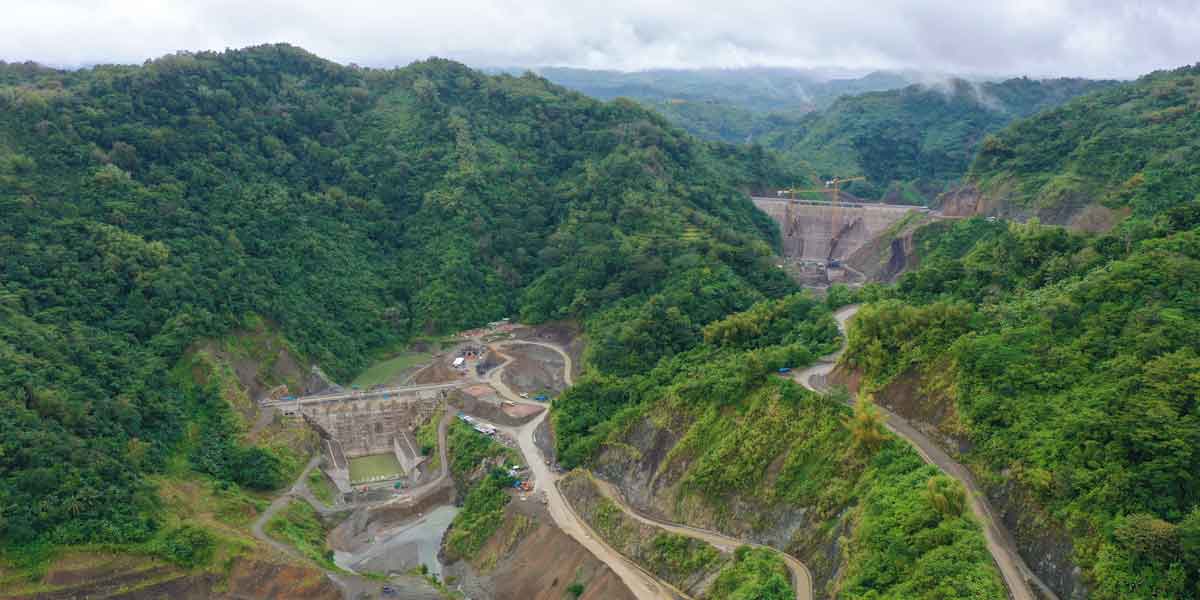 By Herbert Vego
By Herbert Vego
IT’S a case of “aborting” what is expected to be a congested get-together. No thanks to the coronavirus (COVID 19) pandemic, Malacañang has banned the traditional cemetery visitation on All Saints Day (November 1), resetting it instead to any day not later than today, October 28, or any day after November 4.
Today is therefore the “deadline” we hope to meet to pay homage to our departed brothers and sisters.
The Catholic Church first celebrated All Saints Day as a Christian holiday on May 13, 609 during the reign of Pope Boniface IV. As to how the traditional All Saints Day began, the Christian Church admits it’s a take-off from a pagan festival.
The Christian world observes November 1 as the traditional day of praying for the dead, although it’s actually November 2 that is known as All Souls Day in the Catholic liturgy.
The Roman Catholic celebration stems from the doctrine that the souls of the faithful dead need to be prayed for to attain full sanctification and moral perfection before entering heaven.
Ironically, most Christian sects disagree on what happens to human beings after death.
In the Bible, King David propounds that men who reach age 70 are in their “bonus” years: “The days of our years are threescore years and ten, and if by reason of strength they be fourscore years, yet is their strength labor and sorrow, for it is soon cut off and we fly away” (Psalm 90:10, King James Version).
Scientists agree: By the time we reach 70, we will have yielded to distinct physical deformities like wrinkled skin and graying or balding hair.
Here’s a more popular Bible quotation: “To everything there is a season, and a time for every matter under the heaven: A time to be born and a time to die…” (Ecclesiastes 3:1-2).
We have no quarrel with that. What people debate about is what happens to us after death. Do we, like other forms of animals, return to dust forever or move on to a higher life plane?
The famous American poet Henry Wadsworth Longfellow wrote, “Life is real! Life is earnest! And the grave is not its goal. Dust thou art to dust returneth was not spoken of the soul.”
There are as many views on post-death existence as there are religious organizations.
Christianity offers no crystal-clear description of post-earth future. There are cases when what is not written is more acceptable to certain believers than what is written. For instance, while most Christian theologians say that Jesus will come again to resurrect the dead, their followers embrace the contrary belief that the soul immediately leaves the body at death and ascends to either heaven or hell. The Roman Catholics visualize this ascent as an appointment with Saint Peter, who holds the key to our assigned rooms in heaven, hell, or purgatory.
The Bible, however, denies consciousness at the time of death: “For the living know that they shall die but the dead know nothing” (Ecclesiastes 9:5).
“His breath goeth forth, he returneth to earth; in that very day his thoughts perish” (Psalms 146:4).
Indeed, nobody has gone up and returned to tell us what paradise is like.
I remember how my late father coped with lung cancer at age 72 in 1992. Though we had not told him he had terminal disease, he blurted one morning, “I think I will soon die.”
He waited and, a few days later, died.
Tatay had been a member of the Seventh-Day Adventist Church, which stresses that Jesus is coming again to resurrect the dead who had done good into eternity.
Soon after his burial, we opened his briefcase which contained clippings of printed quotations, one of which read: “Come view the ground where I do lie. As you are now so once was I. As I am now so you will be. Prepare for death and follow me.”
It was then that we knew he had prepared.
-oOo-
17 BARANGAY OFFICIALS FACE PILFERAGE CHARGES
MORE Electric and Power Corporation (MORE Power) has filed criminal charges against 17 barangay officials of Iloilo City (including barangay captains and kagawads) for theft of electricity or violation of RA 7832, punishable by 12 to 20 years of imprisonment.
“We are sorry about that,” President Roel Z. Castro of the said distribution utility told us on the radio program Tribuna sang Banwa on Aksyon Radyo last Sunday. “We had been asking for their cooperation in keeping the city free of illegal connections but they would not listen.”
Stolen electricity is called “systems loss,” proportionately charged to paying customers. The utility absorbs responsibility for system’s loss in excess of the allowable 9.5 percent.
In the past eight months of its operation as the new power franchisee, MORE Power has discovered around 30 illegal connections but gave the offending pilferers a chance to legalize.
“Unmetered pilfered electricity could be hazardous to the power pilferers themselves,” Castro deplored. “They could short-circuit and cause fires.”
For fear of fire, Castro revealed, many neighbors of the power thieves had actually come forward to report them to the company.
On the other hand, there are “influential” people who “lobby” for “forgiveness” of their friends, but to no avail because it would only encourage recidivism…
Sometime last week, a team of MORE Power engineers dismantled 27 illegal connections in two barangays.
In line with its modernization program, Castro revealed, “We intend to train barangay electricians so they could help in minor repairs of power lines.”
Castro, recognizing low income as a cause why the thieves persist, assured them of lower cost for installation – as long as three months of installment payment, or as low as an initial down payment of a thousand pesos.
Kay kon masunugan kamo, abu na lang ang bilin sa balay ninyo.






















